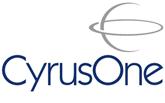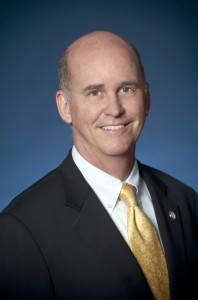 CyrusOne Inc. (NASDAQ:CONE) has closed its previously announced initial public offering of its common stock. CyrusOne sold 18,975,000 shares of its common stock in total in the offering, which included 2,475,000 shares of common stock sold pursuant to the option granted to the underwriters by CyrusOne, which was exercised in full prior to the closing. CyrusOne’s common stock began trading on the NASDAQ Global Select Market on January 18, 2013 under the symbol “CONE.”
CyrusOne Inc. (NASDAQ:CONE) has closed its previously announced initial public offering of its common stock. CyrusOne sold 18,975,000 shares of its common stock in total in the offering, which included 2,475,000 shares of common stock sold pursuant to the option granted to the underwriters by CyrusOne, which was exercised in full prior to the closing. CyrusOne’s common stock began trading on the NASDAQ Global Select Market on January 18, 2013 under the symbol “CONE.”
Morgan Stanley, BofA Merrill Lynch, Deutsche Bank Securities and Barclays acted as joint-bookrunners for the offering. Citigroup, KeyBanc Capital Markets, RBS and UBS Investment Bank acted as co-managers.
A registration statement relating to the securities sold in the offering has been declared effective by the SEC. The offering was made only by means of a prospectus. A copy of the final prospectus relating to these securities has been filed with the SEC and may be obtained by contacting Morgan Stanley & Co. LLC, Attention: Prospectus Department, 180 Varick Street, 2nd Floor, New York, New York 10014, by telephone at +1 (866) 718-1649 or by email at prospectus@morganstanley.com; BofA Merrill Lynch, Attention: Prospectus Department, 222 Broadway, New York, New York 10038 or by email at dg.prospectus_requests@baml.com; Deutsche Bank Securities Inc., Attention: Prospectus Group, 60 Wall Street, New York, New York 10005-2836, by telephone at +1 (800) 503-4611 or by email at prospectus.cpdg@db.com; or Barclays, c/o Broadridge Financial Solutions, 1155 Long Island Avenue, Edgewood, New York 11717, by telephone at +1 (888) 603-5847 or by email at barclaysprospectus@broadridge.com.
This news release shall not constitute an offer to sell, or the solicitation of an offer to buy, these securities, nor shall there be any sale of these securities in any state or jurisdiction in which such offer, solicitation or sale would be unlawful prior to registration or qualification under the securities laws of any such state or jurisdiction.
About CyrusOne
CyrusOne Inc. (NASDAQ:CONE) specializes in highly reliable enterprise-class, carrier-neutral data center properties. The company provides mission-critical data center facilities that protect and ensure the continued operation of IT infrastructure for approximately 500 customers, including more than nine of the Fortune 20 and over 100 of the Fortune 1000 companies.
CyrusOne’s data center offerings provide the flexibility, reliability and security that enterprise customers require and are delivered through a tailored, customer service-focused platform designed to foster long-term relationships. CyrusOne is committed to full transparency in communication, management and service delivery throughout its 24 data centers worldwide.

 By Thomas M. Mengler, J.D., president of St. Mary’s University
By Thomas M. Mengler, J.D., president of St. Mary’s University The modern equivalent of sifting through mail in the mailbox: you scan your email columns (from, subject, date sent) and decide which mail to open and read immediately, which messages to defer to another time and which to delete unopened. Over the past decade, your email has become your primary mailbox, where memos from the boss and notes from the kids arrive alongside ads or junk mail from sites you forgot you subscribed to.
The modern equivalent of sifting through mail in the mailbox: you scan your email columns (from, subject, date sent) and decide which mail to open and read immediately, which messages to defer to another time and which to delete unopened. Over the past decade, your email has become your primary mailbox, where memos from the boss and notes from the kids arrive alongside ads or junk mail from sites you forgot you subscribed to. In today’s hectic business environment, many business owners and managers are often so focused on the day to day operations that they don’t have the time to concentrate on enhancing their overall business plans. Amegy Bank believes that beginning of the New Year is an excellent time for companies to evaluate their internal processes, including their financial strategies.
In today’s hectic business environment, many business owners and managers are often so focused on the day to day operations that they don’t have the time to concentrate on enhancing their overall business plans. Amegy Bank believes that beginning of the New Year is an excellent time for companies to evaluate their internal processes, including their financial strategies.